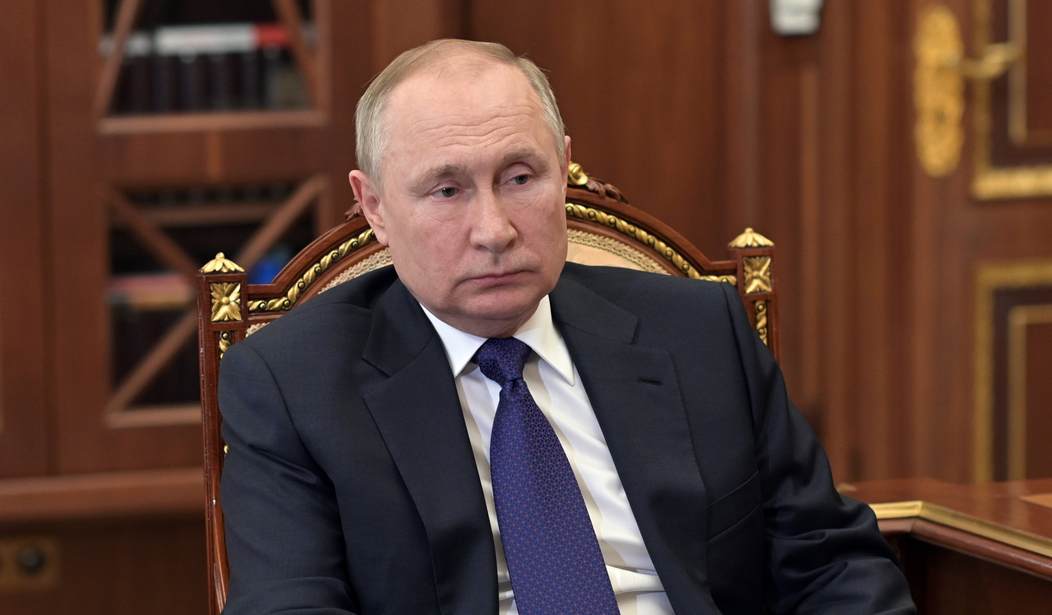Fox News is reporting that the head of Russia’s Ministry of Defense, Sergei Shoigu, has not been seen in public for 12 days and is possibly missing. And Anatoly Chubais, the architect of Russia’s post-Soviet economic reforms, has quit his post as a Kremlin special envoy and left the country due to the war, according to Reuters.
Further, the Jerusalem Post reports “Colonel-General Sergei Beseda, the head of the Fifth Service of the FSB intelligence service, and Beseda’s deputy were being held under house arrest, according to a report by the Center for European Policy Analysis (CEPA) non-partisan think tank.”
Shoigu has been a minister forever in Russia — since Boris Yeltsin was president — and is slavishly devoted to Putin. But with the war not going as planned, Putin may be trying to send a message to the bureaucracy that failure has a price.
In addition to Shoigu, the chief of the general staff of the armed forces of Russia, Valery Gerasimov, hasn’t made any public appearances since shortly after the beginning of the war.
Andrei Soldatov is an investigative journalist and a senior fellow at the Center for European Policy Analysis. He’s an expert on the Russian state’s intelligence apparatus, and he spoke with The New Yorker:
What we know is that, since the war began, Putin’s attacked the agencies already, as far as we know. So the war started at this now infamous meeting of the Russian Security Council, where Putin publicly berated the director of the S.V.R., the foreign-intelligence agency, which is a direct successor to the spy section of the K.G.B. Two and a half weeks later, we got news about the F.S.B. foreign-intelligence branch, because the F.S.B. also has a foreign-intelligence branch coming under attack. We now know about two people, two top-level officials at this department, being questioned and placed under house arrest.
Then, last week, we got news that the deputy head of the National Guard was forced to resign, and he will also probably face some sort of a criminal investigation. And he is not just National Guard. This guy is a former security-services person. He was with Putin’s personal security detail before he joined the National Guard, so he’s known personally to Putin.
Some of these arrests are almost certainly part of an investigation into damaging leaks. Putin’s plans for Ukraine regularly showed up on the front pages of the New York Times and Washington Post. And the way the invasion unfolded proved to be eerily accurate.
“Putin himself has been absolutely sure that he understands Ukraine really well,” said Mr. Soldatov, who is a senior fellow at the Center for European Policy Analysis, a nonpartisan Washington think tank. “He expected his agencies, and first of all the FSB, to do some groundwork like cultivating political groups that could provide support for the Russian invasion. And now obviously that’s not what is happening.”
The Russian leader, Mr. Soldatov added, may also suspect the FSB of leaks, given U.S. intelligence agencies’ detailed knowledge of the Russian invasion plan, some of which Washington made public. The Fifth Service’s responsibilities include maintaining contact with foreign intelligence agencies, including on counterterrorism issues, he said.
Related: Why Putin Has Not Been Deterred
In a dictatorship like Russia, when things go wrong, it’s never the fault of the leader. Bad economy? Fire or execute the head economists. Rotten harvest? The agriculture minister has to disappear.
And when the fortunes of war turn against a dictator, the first thing that needs to be done is to sniff out the traitors and fire the generals.
The danger for Putin comes in making the wrong people angry — people with the guns to overthrow him. In the long history of Russia, this particular purge — if it is a purge — is pretty tame. Stalin’s Great Purge of 1937 ended up with the executions of nearly a million people.
But Putin is injecting an element of fear into serving him that might come back to bite him later.










Join the conversation as a VIP Member